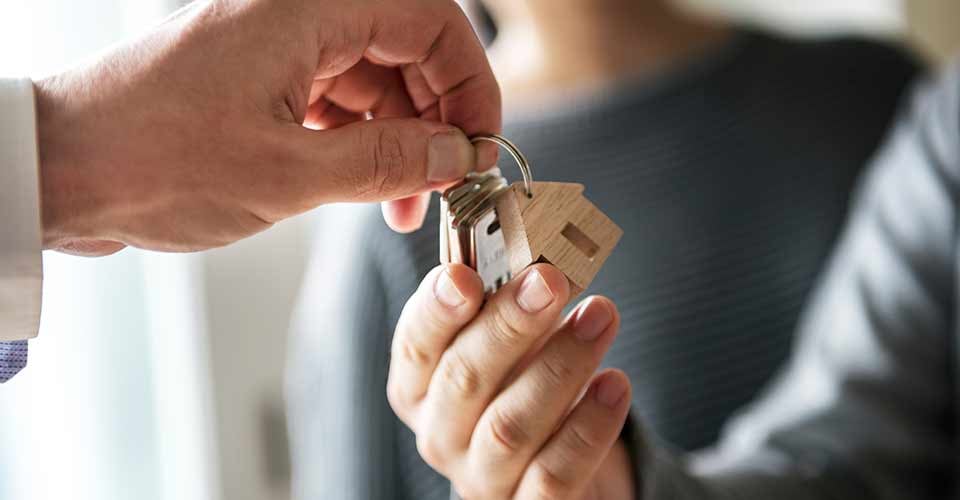Closing on a Florida Mortgage: Learn About the Timeline and More!
Pre-Closing Process and Pre-approval
The pre-closing process is where you'll begin to feel the most stress, but it's also when you can take action to make things go smoothly. Here are some of the things you can expect to do during this stage:
Find a lender
The first step to obtaining a mortgage is finding a lender. You may be tempted to take the first offer you get, but it's best to shop around. Many factors can influence which lender is the best fit for you and your needs, so you must run quotes from multiple companies before making any decisions.
You should also make sure that each quote includes all of your costs—many lenders will charge an application fee or appraisal fee and closing costs at the end of the process.
Determine your loan type
Once you've determined the loan type that best fits your needs, it's time to determine which type of mortgage you want. There are several different types of loans available:
Fixed-Rate Mortgage
These have predictable monthly payments and interest rates. The interest rate remains constant throughout the loan's entire life, so you know exactly how much money is going toward principal and interest each month.
However, your payment amount could increase dramatically if market conditions change drastically after closing on a fixed-rate mortgage.
Adjustable-Rate Mortgage (ARM)
This type of loan is similar to a fixed-rate mortgage, except its interest rate changes periodically based on market factors such as CPI or LIBOR (a particular index used for setting adjustable rates).
If market conditions change drastically after closing on an ARM loan, your payment amount could increase dramatically without warning!
Income calculators
Use an income calculator to see if the lender can afford to lend you money based on what they know from step 2 above, plus other factors such as how much debt you have (for instance, if you have a car loan or student loan).
If it looks like they can afford it, then move on and send your application! If not, another option would be better for both parties—like finding another lender or loan type!
Application
The most crucial step to getting your dream home is filling out an application. The application will ask for information about you and your spouse, how much money you earn, and whether or not you have any other debt.
Document request
After you've submitted your application, the lender will ask for documents to verify the information you've provided on the application. These could include pay stubs, tax returns, and bank statements.
When submitting these documents, make sure they are organized by year and month to help speed up the process. If you don't have copies of these documents on hand, it's best to wait until after your loan has been approved before requesting them from your employer or accountant. That way, there aren't any delays!
Secure a loan estimate
Once you've decided on the type of mortgage and loan you want to apply for, it's time to get a loan estimate. A loan estimate is a document that details the approximate monthly payment, interest rate, and other fees associated with your loan.
It isn't legally binding (and can be changed as part of your final closing documents), but it does give you an idea of what you will owe over the life of your mortgage. You'll also need this information to shop for lenders who offer competitive rates and terms later.
It's best to compare several different lenders' estimates to choose one that best fits your needs while still staying within budget—and remember: The final cost depends on how much money is available in their lending pool on any given day!
Underwriting
The underwriter will use your documentation to verify that the information on the application is correct. They'll be looking for documentation of everything from income and assets to debts and credit history.
In addition, they may ask you to provide more detailed financial records.
-
Income - Recent pay stubs (ideally within 30 days), W-2s, tax returns (if self-employed), 1099s for investment income
-
Assets - Bank statements, retirement account statements
- Debts/Liabilities - Credit reports (at least 2)
Get Pre-approval Letter
Getting a mortgage pre-approval letter is the first step toward getting your dream home. It's a letter that tells you how much money you can borrow from the lender and how much interest rate you'll get.
Once you get pre-approval, the lender has given you the green light to buy a house or condo. It indicates that you've been approved for financing by the lender.

The Closing Process and Home Ownership
You are nearing the final step in purchasing your new home—but it won't be easy. You'll need to know what's going on at every step of the way, including understanding who will be involved and how long each step will take.
Here are some essential things to understand about closing on your mortgage:
-
The closing process can take several weeks
-
Closing costs vary depending on where you live, but they generally range from 2% - to 6% of your home purchase price.
- You can expect different people from different parties (such as lenders) to attend this meeting.
Find a Property and Present Your Offer
If it's your first time buying a home, there are many options, but don't get overwhelmed! Start by thinking about what kind of place would be best for your situation and lifestyle, then narrow down your options.
Once you've found a place that meets your needs and wants (and one that can be financed), get ready to put in an offer! The seller might accept or reject your offer—if they reject it, don't worry! Just try again until someone says yes!
Set up escrow
An escrow is a neutral third-party account that holds money and documents related to your purchase. Most escrow accounts are held by a real estate attorney or title company. The buyer and seller do not have access to the funds in an escrow account until closing.
Still, they can both view copies of all documents in the file (like loan documents and inspection reports), so they know what they're getting into before offering a property.
Once you've signed a purchase agreement, your lawyer will start setting up your escrow account with the title company or attorney who holds it.
This process could take three days to a few weeks, depending on how quickly everything gets done! Once your new house has been transferred over into your name, you're ready for closing day!
Perform Title Search
The next step in the process is performing a title search. A title search is a process of inspecting the chain of ownership and all documents related to property ownership. It's also known as a "title report" because you'll receive a written document that outlines your search results.
There are several things to look for in this report, including whether there are any liens or encumbrances on your new home that must be removed before closing.
To perform this task, you will need to hire an attorney or escrow agent who specializes in real estate transactions and has access to public records regarding land ownership (known as public records). This person should review all available records concerning your home purchase, including:
- Deeds (the official legal document recording ownership)
- Mortgages or liens against the property
- Recording statements for new additional co-ownership deeds
Get a home inspection
The home inspection is a visual inspection to assess the property's condition, including its physical components (walls, floors, and ceiling), mechanical systems (heating, cooling, and ventilation), electrical systems, plumbing, and any other components included in the sale contract.
The cost of a home inspection varies widely depending on where you live and what type of inspection you have done. Many buyers pay between $300 and $400 for an initial walkthrough with a licensed inspector that covers basic functionality concerns such as whether there is hot water or electricity in all rooms but also goes into more detail about structural issues like foundation cracks or roof leaks.
If there are significant problems found during the initial walkthrough inspection—such as missing shingles on your roof—you may want to consider having them fixed before closing so they don't become an issue later on down the road when you try filing an insurance claim against your lender after incurring unexpected repair costs from these issues occurring post-closing.
Sign your loan agreement & lock your mortgage rate
You've been approved for your loan, and now it's time to sign the paperwork.
-
Get a loan estimate - This document will be used in the next step, so make sure you have it handy.
-
Get a loan agreement form - The lender will use this form as well; if you don't have one, ask them for one before signing anything! They'll also need any additional documents related to your purchase (like proof of employment).
- Lock your rate and lock your interest rate - the two go together here. Once you've locked in on a specific interest rate, there won't be any changes until closing day (unless something happens with their credit score or income).
If the lender can't give final approval by then because of some issue with the application information, they may ask you if they can "float" until closing day.
In this case, both parties agree that whichever party wants out first gets their money back right away so that no one loses any money unnecessarily due to delays or unforeseen circumstances
Get title insurance
Title insurance protects against mistakes in the title search. This is important because many things can be missed during a title search, such as liens or mortgages on the property, previous owners who had liens or mortgages on the property (and they might not have paid them off), and unknown heirs that may come forward and claim the property.
Title insurance also covers litigation costs if there are any disagreements over ownership of your home after it is built. A dispute resolution process will be set up to resolve any issues between you and your builder/developer before closing on your new home purchase!
Get an attorney
As you prepare to close on your home, it's essential to understand what a real estate attorney does and when you need one. When preparing for the closing process, here are some steps you can take:
-
Find an attorney who practices real estate law. This will ensure that the attorney has experience with all aspects of real estate transactions. If possible, ask friends or family members for recommendations on local attorneys who they trust.
-
Contact the recommended lawyers and schedule an appointment with each one so that you can decide which person is right for your needs. Prepare by creating a list of questions regarding their experience of buying homes and including any legal documents (such as contracts) made during negotiations with potential buyers or sellers to review with them during this meeting if necessary.
- You may want to start by asking these questions. What do I need from my lawyer? How much does this service cost? Do they specialize in residential transactions? What kind of background do they have in commercial real estate? The more educated about what type of service each company provides before making any decision will help ensure good communication between clients/lawyers throughout this process."
Negotiate closing costs
The closing costs on a home purchase can be negotiated. These are fees paid at the end of the transaction, and they include things like:
- Title insurance
- Appraisal fee
- Document preparation fee
- Property survey fee (if requested)
You will want to ensure all of these fees are included in your contract before signing it, as some may not be part of the usual process. You should also find out what you can negotiate for each fee and get them reduced as much as possible.
Complete paperwork and get ownership
Check your paperwork and make sure that everything is correct. Sign all of the necessary documents and get the title. Please take pictures of each of the new keys so you can keep track of them in case they get lost or stolen in transit.
Change the locks on all doors and windows before moving in, including those that aren't used anymore but still have locks on them for security reasons (such as a balcony door). If someone has been using one of these doors or windows, change their lock!
Average Mortgage Closing Times
The average closing time for a mortgage is 45 days, but this can vary depending on the lender, type of loan, and property in question.
Lenders that use their affiliates or subsidiaries to issue loans typically have shorter closing times than those that don't.
FHA loans tend to take longer to close than conventional fixed-rate mortgages because of the extensive documentation and additional steps.
Suppose you're buying a house in an area with many adjustable-rate mortgages (ARMs) with low introductory rates that will adjust up at some point in the future. Your closing could also take longer if there aren't enough escrow funds available to cover all those adjustments out of pocket.
How Close On a Mortgage Faster
To get your mortgage approval faster, you need to hire an experienced team of professionals. They will help you do your research and plan so that when it comes time to apply for a loan, there are no surprises on either side. The more upfront with your lender about any issues or problems that may arise during the process, the better they can help you avoid delays.
Make sure to ask questions! If there is something at all that's unclear or makes no sense in the paperwork given to you by the bank or servicer (the company responsible for collecting payments from borrowers), be sure not only to ask questions but also to have them answer them completely—they should be willing and able provide detailed explanations as well as examples of similar situations if needed.
Mistakes to Avoid When Closing On a Mortgage
Don't apply for credit before the closing date. This can surprise some buyers, but it's important to remember that you don't have access to your money until after closing the loan.
Although many lenders allow pre-approval, keep in mind that it's only an estimate, and there's no guarantee that you'll receive exactly what was approved.
Avoid job changes during the process of applying for a mortgage. Lenders want to see stability—both financially and career-wise—and are wary of sudden changes in income or employment status (even if they're positive).
If you've been planning on changing jobs when you move into your new home and pay off credit cards with high-interest rates, be aware that this may affect your ability to qualify for a mortgage if you're applying now.
Switch banks at least 30 days before the closing day so that all checks written by previous institutions get processed properly by new ones. Otherwise, they could bounce back as undeliverable due to insufficient funds because they were made out in another bank's name instead of yours (which would appear as "unknown").
Conclusion
Closing on a mortgage and becoming a homeowner is a little different for everyone, but the above is how it typically goes.
With over 50 years of mortgage industry experience, we are here to help you achieve the American dream of owning a home. We strive to provide the best education before, during, and after you buy a home. Our advice is based on experience with Phil Ganz and Team closing over One billion dollars and helping countless families.

About Author - Phil Ganz
Phil Ganz has over 20+ years of experience in the residential financing space. With over a billion dollars of funded loans, Phil helps homebuyers configure the perfect mortgage plan. Whether it's your first home, a complex multiple-property purchase, or anything in between, Phil has the experience to help you achieve your goals.


 By
By  Edited by
Edited by 






